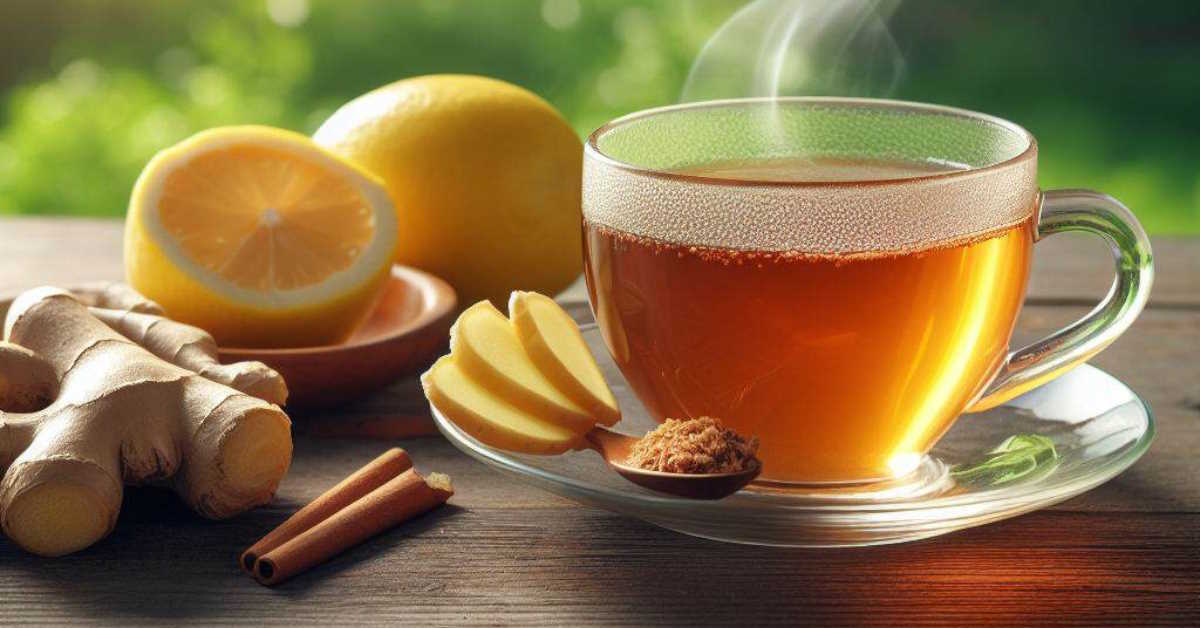How to Make Ginger Tea?

Ginger tea, with its invigorating aroma and numerous health benefits, has been enjoyed for centuries. This warm and comforting beverage not only offers a delightful flavor but also serves as a natural remedy for various ailments. In this article, we will guide you through the process of making salabat at home, allowing you to experience its soothing effects and harness its potential health advantages.
Health Benefits of Ginger Tea
1. Digestive Aid: Ginger tea is renowned for its ability to ease digestive discomfort. By soothing an upset stomach, relieving indigestion, and reducing bloating, ginger tea acts as a natural remedy for gastrointestinal issues.

2. Anti-Inflammatory Properties: The anti-inflammatory properties of ginger tea make it a valuable addition to your daily routine. Consuming salabat with oregano regularly can help reduce inflammation in the body, providing relief from joint pain, muscle soreness, and other inflammatory conditions.
3. Immune System Booster: The immune-boosting properties of ginger tea can help strengthen your body's defense mechanisms. By enhancing immune function, ginger tea may help protect against common colds, flu, and other respiratory infections.
4. Antioxidant Effects: Ginger tea is rich in antioxidants, which protect the body against oxidative stress and cell damage. Regular consumption of ginger tea can contribute to overall health and wellbeing.
Gathering Ingredients and Equipment
To make ginger tea, you will need the following ingredients and equipment:
Ingredients:
1. Fresh ginger root
2. Water
3. Honey or lemon (optional)
Equipment:
1. Tea infuser or strainer
2. Kettle or pot
Preparing Ginger Tea
Step 1: Cleaning and Peeling Ginger
Begin by cleaning the ginger root under running water to remove any dirt or impurities. Use a knife or peeler to peel the ginger’s outer skin.
Step 2: Slicing or Grating Ginger
Next, thinly slice or grate the peeled ginger. Slicing allows for a milder flavor, while grating intensifies the taste.
Step 3: Boiling Water
Fill a kettle or pot with the desired amount of water and bring it to a boil.
Step 4: Adding Ginger to Water
Once the water has reached a boil, add the sliced or grated ginger to the pot. Use approximately one tablespoon of ginger per cup of water, adjusting the amount based on your taste preferences.
Step 5: Infusing Ginger in Hot Water
Reduce the heat and let the ginger simmer in the hot water for about 10-15 minutes, allowing the flavors to infuse.
Step 6: Straining Ginger Tea
Using a tea infuser or strainer, separate the liquid from the ginger solids, ensuring a smooth tea without any fibrous pieces.
Step 7: Adding Honey or Lemon (optional)
For added sweetness or a tangy twist, you may choose to add a teaspoon of honey or a squeeze of fresh lemon juice to your ginger tea and enjoy a cup of salabat with honey or lemon juice.
Step 8: Adjusting Taste and Consistency
Taste the ginger tea and adjust the flavor by adding more ginger, honey, or lemon according to your preference. You can also dilute the tea with hot water if desired.
Serving and Enjoying Ginger Tea
1. Recommended serving size: A standard serving size for ginger tea is one cup (240 ml). However, you can adjust the quantity according to your preference.
2. Timing of consumption: Ginger tea can be enjoyed any time of the day. Many people find it particularly soothing in the morning or after a meal to aid digestion.
3. Additional flavor variations: Experiment with different variations by adding herbs like mint or basil or spices like cinnamon or cloves to enhance the flavor of your ginger tea.

Potential side effects and precautions: While ginger tea is generally safe for most people, study shows that excessive consumption may lead to digestive issues or interact with certain medications. It is advisable to consult a healthcare professional if you have specific concerns or medical conditions.
Conclusion
Making ginger tea at home is a simple and rewarding process that allows you to enjoy its soothing properties and health benefits. By incorporating this invigorating beverage into your daily routine, you can experience the digestive, anti-inflammatory, immune-boosting, and antioxidant effects of ginger tea while savoring its delightful flavor. So why not give it a try and embark on a journey of wellness and rejuvenation? Cheers to a cup of homemade ginger tea!

